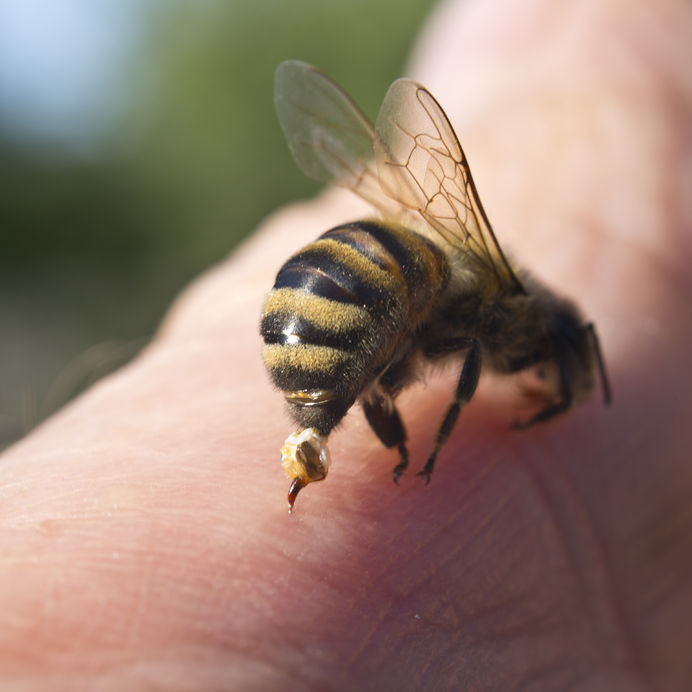Doctors Warning About Honeybee Sting Acupuncture
April 05, 2018
To treat her muscle pains, a 55-year-old woman from Spain sought live honeybee sting acupuncture, which is a therapy that involves strategically-placed stings from bees. After attending sessions every month of a two-year period, the woman’s last visit resulted in her going into anaphylactic shock. As per a case study that was published recently, the woman eventually died due to a stroke.
While many enjoy the honey that bees naturally produce, most of those same people do what they can to avoid actual bee stings. However, there are those who believe that apitherapy, which combines relatively harmless royal jelly and honey with live bee venom, is safe due to it being considered a complementary therapy. Even more so, several celebrities promote this therapy, calling it a primeval treatment for the reduction of scarring and inflammation. However, no such evidence currently exists.
“It’s uncontrolled and potentially dangerous,” says Dr. Dean Mitchell, who is an associate professor with New York’s Touro College of Osteopathic Medicine. “I am open to a lot of things, but I would like more literature and reporting [on bee sting acupuncture].” While this recent case study states the woman from Spain is the first recorded death caused by apitherapy, experts suspect allergic reactions occur from this treatment all the time. “You are freaking injecting someone with bee venom,” says Dr. Adam Friedman, who is an associate dermatology professor with the George Washington School of Medicine and Health Sciences. “I’m sure allergic reactions happen more than we think.”
Regarding apitherapy, it seems most commonly used for treating multiple sclerosis, inflammation, and pain. “It kind of makes sense. While the stings hurt, they can kind of [stop] the nerve’s capacity to send out signals,” Friedman said. However, doctors don’t know how sting therapy could even work, says Dr. Ricardo Madrigal-Burgaleta, who authored the case study, published in the Journal of Investigational Allergology and Clinical Immunology. Madrigal-Burgaleta stated, “Apitherapy promises—by a completely unknown mechanism and with no clinical evidence—to cure a wide range of maladies.”
Despite the patient previously undergoing the procedure without a severe reaction, her eventual fatal allergic response is not an unusual one. People who are exposed to allergens can develop allergies, which is a process called sensitization. Per Madrigal-Burgaleta, “Sensitization is clearly facilitated by intermittent exposure patterns, such as repeated bee stings over a period of time.” Experts are currently unsure how much exposure causes allergies to develop, and in the end, most will tell you to skip live sting acupuncture altogether. “Be extremely careful,” says Madrigal-Burgaleta. “The risk may overwhelm the intended benefit, and you might very well be completely oblivious of it.”
Copyright: daviden / 123RF Stock Photo


.jpg)



